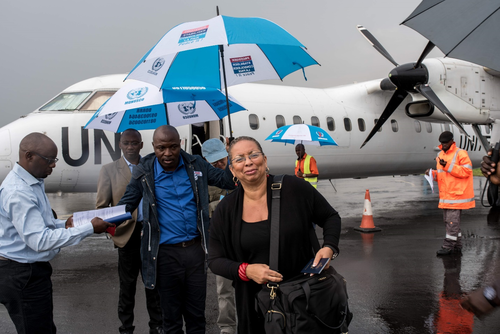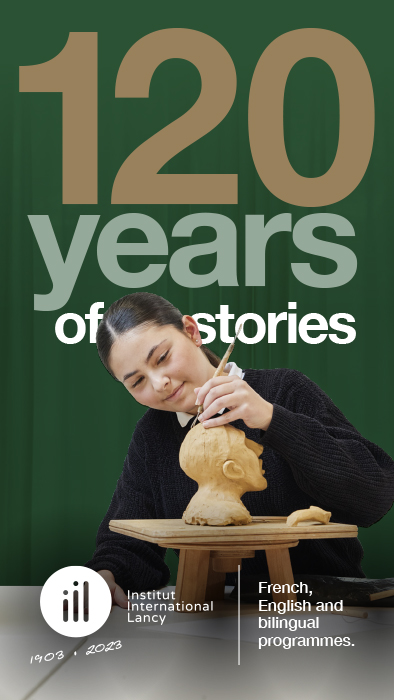The UN Ombudsman reflects on her first year at the United Nations and shares her vision for 2020.
We recently sat down with Ms. Dodson, UN Ombudsman, who joined the United Nations in September 2018.
You have been appointed as UN Ombudsman a little over a year ago. How did you come to this position?
“I applied!” Ms. Dodson’s eclectic career spans almost 40 years of corporate, non-profit, and government experience. She also possesses a natural inclination for listening to, and helping, people, and the ability to draw people in. “I’ve always been willing to change jobs and take risks, one foot firmly planted in what I knew and the other foot dangling in the unknown,” which led her to be appointed as the first full-time Ombudsman for the US Department of State, before joining the UN.
“Operating under the four core principles of confidentiality, informality, neutrality and independence, we help people resolve conflicts informally, so they return to the workplace having come to some understanding and resolution, and with dignity.”
What you have observed during this first year?
“I was very impressed with the wealth of knowledge and the incredible diversity within the Organization. I realized early on that the UN was a web of organisms, each with its own ecosystem and culture, all pulsating around the mission of the United Nations.”
Daunting at it seemed, the task didn’t scare Ms. Dodson, who took time to listen and understand. She visited the Regional Offices in Bangkok, Entebbe, Geneva, Goma, Nairobi, Santiago and Vienna, and met with stakeholders around the world, to hear first-hand the challenges faced on the ground. Fostering collaboration and cooperation along the way, she realized that changes, albeit slow, do happen. “Getting people to know you and understand what you stand for is crucial. Then you develop relationships and build trust. And soon enough, we realize that we are all in it together and share the same goals.”
Based on her observations, she reshaped her office. “My emphasis, in realigning the Office, was on being able to better respond to the needs of all staff – regardless of contract types, location, etc., and identify systemic issues earlier, allowing for feedback to be provided at the level at which change(s) can happen.”
What can you tell us about systemic issues (root causes) your Office identified?
“While working with visitors, we may notice systemic issues. Coordinated and analysed, these are shared in an aggregated and depersonalized level with stakeholders at all levels of the Organization, while maintaining confidentiality of names or other identifying features. For instance, I mentioned in various fora and meetings that close to 40% of the cases brought to our attention have an underlying issue related to incivility.”
“The section on systemic issues in our latest report to the General Assembly [A/74/171] focuses on the correlation between mounting stress levels and uncivil or abrasive behaviour by managers as well as staff members, with an increasingly serious impact on the victims and entire teams. Concern for the physical and mental wellbeing of all involved is also noted.” Often, she noted, a conversation is missing, which would have resolved the issues and lifted unnecessary stress.
“People struggle with difficult conversations. Yet these conversations are essential not only to the work, but also to the health of the teams. Being able to communicate with one another, ensuring accountability while encouraging good performance, allowing for a safe place for all, regardless of levels, to share their opinions, needs and concerns, respecting diversity and everyone’s dignity: this is what a workplace consistent with the values of the UN looks like.”
“I invite you to come see us if you need help: individuals coming to our Office find support for their issues, while at the same time becoming an agent for change at the grassroots level. Your voice counts, so be heard!”
How are these issues addressed?
“One of the most important results of our upward feedback has been the Secretary-General’s Civility Initiative, and the introduction of accountability for promoting a harmonious workplace in his compact with senior managers, calling on them to ‘ensure the dignity of each person by promoting an environment of civility and psychological safety that empowers staff, fosters creativity and innovation, and enables better communications amongst all staff’.”
“In support of this initiative, we launched the campaign ‘Dignity Through Civility,’ aimed at increasing awareness, engaging dialogue and promoting action to improve the quality of workplace behaviour. UN employees have enthusiastically participated in the interactive C3 (Civility, Communication, Community) Workshops, and the engaging Civility Cafés.
Which direction will your Office be taking in 2020?
“In 2020, we will continue to strengthen our delivery of services to all UN employees and to provide new tools to empower our visitors in dealing with their workplace conflicts. We will also keep working on civility, as incivility remains an underlying issue to many of the cases we deal with. We need to give the initiative enough time to bear fruit.” More C3 Workshops and Civility Cafés will be offered in your region soon. “Information on our services and our campaign ‘Dignity through Civility’ will be available on our revamped website.”
Additionally, Ms. Dodson is focusing on synergies between ombudsman and mediators in organizations that are members of the CEB1. They formed a network, which meets quarterly to discuss issues and bring coherence to the practice.
Finally, “we will be looking at getting a better understanding of how we can be most effective and add value.” While recognizing survey fatigue in the Organization, Ms. Dodson’s ability to provide useful services to UN employees depends on what we can tell her in our responses to her upcoming survey. “We count on you to help us get a clearer picture of where we stand and where we need to improve. Thank you.”
Ms. Shireen Dodson is based in New York. For questions or assistance in Geneva, please contact Mr. Nicholas Theotocatos, Regional Ombudsman, at nicholas.theotocatos@un.org or +41-22-917-3760.
1 Chief Executives Board for Coordination.




